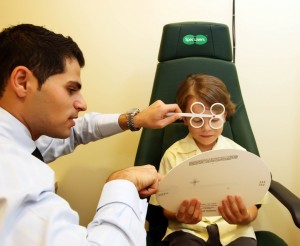Renovations are a key part of turning a house into a home, but without proper precautions, children can easily get hurt during the process. As parents, then, it’s our job to make sure we can provide a safe environment for your children to live, eat, and play while the house is undergoing this kind of work.
How separated from the renovations your children need to be depends on how old they are and what kind of work your home is undergoing. As you begin, however, keep these 3 common home renovation risks in mind and guide your children accordingly.
Old Home Problems
Some of the biggest problems found in old homes and often revealed during renovations are lead paint and asbestos in the house. Lead paint was commonly used in homes through the 1970s, and many parents undertake renovations to eliminate this old paint; if small children ingest chipping lead paint, it can build up in their bodies and cause developmental delays. So long as you keep children out of the rooms where this paint is, however, and make sure they’re properly cleaned up, everyone should be fine.
Asbestos is even more dangerous than lead, and has been linked to cancer, but for many years it was used as insulation in homes and public buildings. If workers will be removing asbestos from your home, it’s best to have your kids stay elsewhere. Your home will need to be fully cleaned and the air purified before they come back.
Fresh Paint Problems
Unlike lead paint, most of us assume that modern paint products, beyond smelling a bit unpleasant, is perfectly safe. That’s why parents have no qualms about painting murals in children’s rooms or otherwise accenting the home with paint. Unfortunately, some paints can release volatile organic compounds (VOCs) that can be toxic in large quantities. While an occasional fresh coat of paint won’t hurt your kids, you may want to have them sleep in a different room for a few days until the air clears.
Consider Navigation
Depending on what renovations you’re having done in your home, construction may create navigational barriers where children can get hurt. For example, if a hole is being made in walls or flooring, you can guarantee that children will want to inspect the area. With older children, you can set limits during the construction period, but with young ones, you’ll need to entirely block off any interesting areas to make sure they don’t get hurt.
One way to help your children steer clear of ongoing construction is by setting up alternative spaces to use during the renovations. If you don’t have access to your kitchen, put a few convenient pieces like a toaster, microwave, and kettle in the garage or family room so that there is still a place they associate with eating. This helps them develop new, temporary habits until construction is over.
If you’re struggling to make alternate arrangements for your children during the renovation process, just remember that they’ll be completed soon. For the time being, set up playdates, take a weekend trip, or visit grandma to keep the kids safe. You’ll all be happy to come back to your beautiful home when the work is done.
Originally posted on August 26, 2016 @ 6:15 pm
